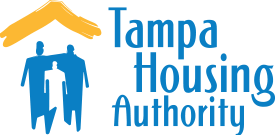No Smoking Policy
Tampa Housing Authority buildings, rental units, community centers, play areas, and adjoining properties are smoke-free.
Smoking includes inhaling, exhaling, burning, or carrying any lighted cigar, cigarette, pipe, or another lighted smoking device. This also includes the use of E-cigarettes, vapor-emitting devices, and hookahs.
Tampa Housing Authority Smoke-Free Policy
On May 29, 2012, HUD issued a notice that strongly encouraged Public Housing Authorities to implement smoke-free policies in some or all public housing units. No later than 18 months from the effective date of HUD's Final Rule of February 3, 2017, each PHA implemented a "smoke-free" policy banning the use of prohibited tobacco products in all public housing living units, indoor common areas in public housing, and in PHA administrative office buildings. Smoking is not allowed in common areas, resident units, offices, or in any THA buildings and grounds.
Background: Tampa Housing Authority implemented this policy because we are concerned with secondhand smoke and the effect it has on the health of our residents and the community. By being smoke-free, we improve the overall health of the community, reduce tenant complaints, and reduce maintenance costs. There is no safe level of secondhand smoke exposure because smoke drifts throughout a building. It can enter through ceiling crawl spaces, light fixtures, and walls and seep under and around doors. Ventilation systems do not protect families from secondhand smoke. Most air filter systems are designed to remove odors, not the toxic particles from tobacco smoke. The Environmental Protection Agency (EPA) lists secondhand smoke as a Class A Carcinogen, the most toxic class of chemicals that are known to cause cancer in humans. Secondhand smoke is the leading trigger of asthma attacks and other respiratory problems and a known cause of Sudden Infant Death Syndrome (SIDS).
Existing Laws Allows For Smoke-Free Housing: Even though smokers feel that it is their right to smoke in their units, there is no Federal or State law that prohibits a property owner from implementing a smoke-free policy for their buildings or grounds, and there is no legal right to smoke in federally subsidized housing. Smoke-free policies do not infringe on the legal rights of individuals because smokers are not a protected class under any state or federal law. Smokers may feel that it is their constitutional "right to smoke," which is untrue since the U.S. Constitution does not extend special protection to smokers because there is no fundamental right to smoke. Fair housing laws do not apply to smokers, but they may be applicable when secondhand smoke infiltrates non-smoking housing units.
Definition of Smoking: Inhaling, exhaling, burning, or carrying any lighted cigar, cigarette, pipe, or other lighted smoking device for burning tobacco or any other plant.
If you have questions about this policy, please call our office.



